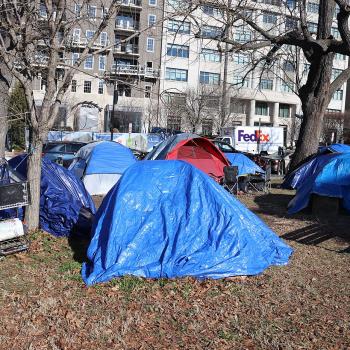Deconstructing Pueblo’s inferiority complex
By Christian Piatt
(Originally printed in PULP)
If I had but one wish for our community in the new year, it would be to eliminate the qualifier “for Pueblo” from our collective vocabulary.
I went downtown a few weeks ago to hear a screaming jazz ensemble with my friend Barclay Moffitt, that took the group to new melodic heights with his tenor sax. Though still a college student, Barclay has worked on several studio recording sessions with pros, and currently is on a full scholarship at Berklee College of Music in Boston. Back for his winter break, he sat in with a handful of other musical savants and cranked out some of the finest bossa nova, bebop and ballad standards anyone could hear most anywhere, especially on a Tuesday night.
“These guys are really good for Pueblo,” a person nearby said in a tone that clearly was not meant to be secretive. “Where are they from?” When told all of these folks were home-grown talent, they blinked in disbelief, as if such cultural sophistication defied the laws of Pueblo physics.
These guys were good enough for most anywhere, not just Pueblo. So, why say such a thing? And why the surprise? After all, in a country of some 130,000 people, can’t we figure that there will be at least a smattering of folks who are really pretty amazing at most anything we can think of? Or do people believe that Pueblo is an exception to the rule when it comes to quality?
I asked some of our local public leaders their thoughts about this, since I’m sure they bump up against this kind of mentality even more than I do. Angela Giron, our recently elected state senator, offered an interesting anecdote related to this very subject.
“I have a friend, Theresa (she managed my campaign),” says Giron, “who is a community organizer in Pueblo with the Colorado Progressive Coalition. Following the election, she was diagnosed for the second time in five years with breast cancer. She is committed to receiving treatment in Pueblo but has received lots of ‘advice’ to leave town to get a second opinion.
“People seem to be genuinely shocked that she is opting to be treated in her home community. We have had several discussions about this.
“I believe the inferiority complex stems from our identity as a blue-collar steel town. That class bias, coupled with a geographic identity and culture that seems to find greater affinity with Northern New Mexico than the Northern part of Colorado, has historically left Pueblo (and much of Southern Colorado) on the outs.
“When you come from a community that is working class and 50 percent Latino, it is no surprise, given the history of this country and region, that we have issues with internalized inferiority.”
County Commissioner Jeff Chostner has a different perspective. “I don’t think Pueblo has an inferiority complex,” he says, “but I do think our history has made us look more inward than outward. I believe that is one of our challenges, particularly with regard to economic development, and in other areas as well.
“We are trying to do more outreach with the rest of the Front Range in integrating our economies and cultures. As more businesses locate in Pueblo and more folks come to Pueblo County, I think you will see us take a more prominent role in Colorado and there will be less introspection.”
So is it a matter of internalized inferiority? Or are we buying the baloney that’s peddled about us up north? Maybe, as Chostner suggests, it’s more a matter of cultural isolation than it is an issue of a “less than” mentality.
Though I’d like to lean more in the commissioner’s direction, my gut tells me Sen. Giron is more on the mark. And based on my discussions with lifelong locals, it doesn’t seem like a state of mind that’s only come along since the steel bust some decades ago. Maybe it starts with what we’re telling our kids, how we help them understand their own worth and, by extension, the value of the community in which they’re raised.
I expect that, as institutions like CSU-Pueblo and international businesses like Vestas broaden the scope of who is drawn to live here, the negative self-doubt ethos will be diluted. That, or it will simply become more concentrated among “lifers” who see themselves as somehow inferior to new imports, simply because of where they come from.
I hope, for the sake of our city and its residents, that we come around to the mindset that it’s the imports who are lucky to have found us, rather than the other way around.















